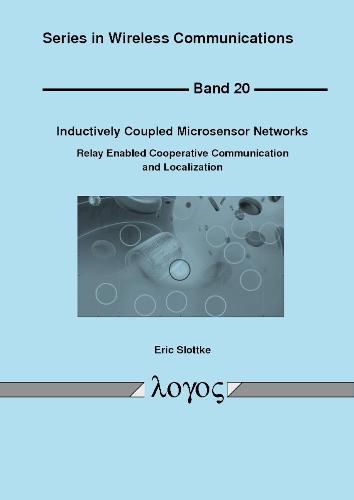Inductively Coupled Microsensor Networks: Relay Enabled Cooperative Communication and Localization
Eric Nathan Slottke

Inductively Coupled Microsensor Networks: Relay Enabled Cooperative Communication and Localization
Eric Nathan Slottke
In this thesis, we study a novel paradigm for wireless sensor networks: we envision a dense microsensor network, consisting of hundreds or thousands of highly miniaturized wireless nodes with millimeter or sub-millimeter dimensions. Such a microsensor network has many interesting applications ranging from in vivo medical sensing to environmental monitoring. However, the design and operation of the envisioned type of network are challenging: the large number of nodes, in combination with the small form factor, imposes severe constraints on both node complexity as well as power consumption. We propose using inductive near-field coupling as advantageous physical layer choice, allowing an RFID-like operation of the network with wireless power supply from central reader devices and low-complexity tag design. Our primary goals for inductively coupled microsensors are twofold: we want to enable reliable communication to and between sensor nodes, and perform accurate localization of individual sensors. Both tasks are affected by the central limitation of a physical layer based on near-field coupling: the severely limited range of interaction. We will show throughout this thesis that the use of wireless relaying allows for overcoming this limitation.
This item is not currently in-stock. It can be ordered online and is expected to ship in approx 4 weeks
Our stock data is updated periodically, and availability may change throughout the day for in-demand items. Please call the relevant shop for the most current stock information. Prices are subject to change without notice.
Sign in or become a Readings Member to add this title to a wishlist.


